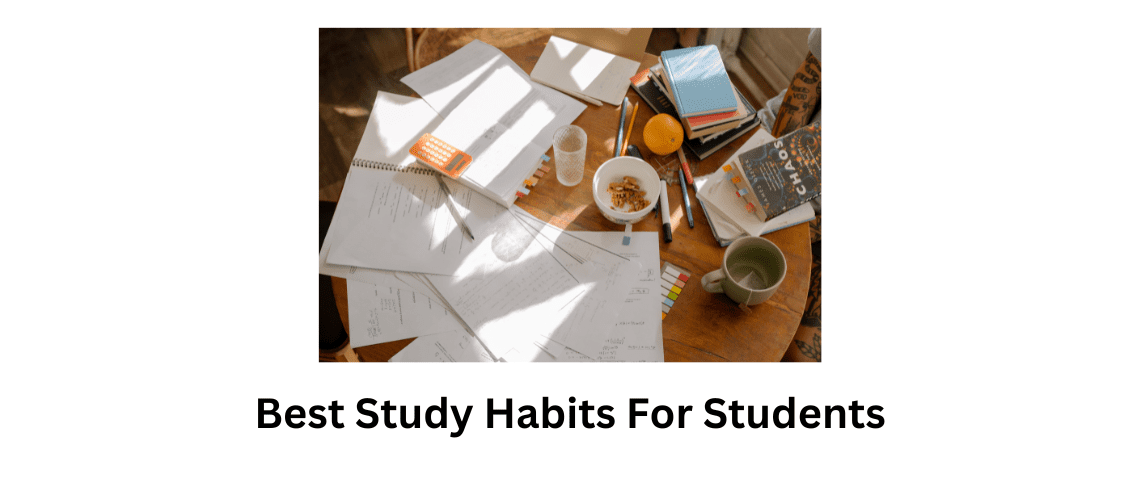Embarking on the journey of college life brings with it a host of academic challenges and opportunities for growth. To navigate this pivotal phase successfully, mastering effective study habits is essential.
Whether you’re a freshman adjusting to the rigors of higher education or a seasoned student seeking to enhance your academic performance, adopting the right study habits can make all the difference. In this comprehensive guide, we’ll explore top study habits for college students that will help them excel academically and reach their full potential.
Why You Need to Develop Study Habits?
The A-level curriculum is rigorous and requires a deeper understanding of the subject matter compared to earlier academic levels. Developing study habits helps you manage the workload effectively and ensures thorough comprehension of complex concepts across various subjects.
Unlike rote memorization, A-level education emphasizes critical thinking, analysis, and application of knowledge. By cultivating study habits such as active learning and effective note-taking, you can delve deeper into the subject matter, connect ideas, and develop a nuanced understanding of key concepts.
A-level exams are comprehensive and assess your ability to apply knowledge to real-world scenarios. Adopting study habits such as regular revision, practice exams, and time management techniques equips you with the skills needed to excel in exams and achieve optimal results.
College education demands effective time management to balance coursework, revision, and extracurricular activities. Developing study habits helps you prioritize tasks, allocate time efficiently, and maintain a healthy work-life balance amidst the academic demands of A-levels.
In essence, developing study habits tailored for A-level education is essential for academic excellence, exam success, and personal growth.
9 Crucial Habits for College Students
Time Management
College life often demands juggling multiple commitments, from classes and assignments to extracurricular activities and social engagements. Effective time management is crucial for staying on top of your responsibilities and maximizing productivity. Create a study schedule or timetable that allocates specific time slots for studying each subject, and prioritize tasks based on deadlines and importance. Avoid procrastination by breaking tasks into smaller, manageable chunks and tackling them systematically.
Active Learning
Passive studying, such as mindlessly rereading textbooks or lecture notes, is not conducive to long-term retention and understanding. Instead, engage actively with the material by taking notes, asking questions, and participating in class discussions. Use techniques like summarizing, paraphrasing, and teaching concepts to others to reinforce learning. Experiment with different learning styles, such as visual, auditory, and kinesthetic, to find what works best for you.
Timely Note-Taking
Develop a system for taking organized and concise notes during lectures and while reading textbooks. Experiment with different note-taking methods, such as the Cornell method or mind mapping, to find a format that suits your learning style. Focus on capturing key concepts, main ideas, and supporting details rather than transcribing everything verbatim. Review and revise your notes regularly to reinforce learning and identify areas of weakness.
Study-Life Balance
It’s important to strike a balance between studying and resting to prevent burnout and maintain focus. Take regular breaks during study sessions to recharge your mind and avoid mental fatigue. The Pomodoro Technique, which involves working in short bursts with breaks in between, can be an effective strategy for improving concentration and productivity. Prioritize sleep and ensure you get an adequate amount of rest each night to support cognitive function and overall well-being.
Focus on Health
A healthy body supports a healthy mind, so prioritize self-care habits that promote well-being. Maintain a balanced diet, get regular exercise, and stay hydrated to nourish your body and mind. Avoid excessive caffeine or energy drinks, as they can disrupt sleep patterns and lead to increased stress. Make time for relaxation activities such as meditation, yoga, or hobbies to reduce stress and promote mental clarity.
Routine Revisions
Review and revise material regularly to reinforce learning and consolidate your understanding. Use techniques like spaced repetition, flashcards, and practice quizzes to test your knowledge and retention. Break down larger concepts into smaller, manageable chunks and quiz yourself on each component to ensure comprehensive understanding. Seek feedback from professors or peers to identify areas for improvement and focus your revision efforts accordingly.
Utilize All the Resources
Take advantage of resources available to you, both on and off campus, to support your studies. Explore textbooks, online tutorials, academic support services, and study groups to supplement your learning and deepen your understanding of complex concepts. Don’t hesitate to seek help from professors or tutors if you’re struggling with a particular subject, as they are there to support your academic success.
Set SMART Goals
Set specific, measurable, achievable, relevant, and time-bound (SMART) goals for your studies to stay motivated and focused. Break larger goals into smaller, manageable tasks, and track your progress regularly to ensure you’re on track to achieve your objectives. Celebrate small victories along the way to maintain momentum and reinforce positive habits. While you are at it, don’t miss the opportunity to celebrate small achievements on the way so that you can.
Stay Organized
Keep your study materials, notes, and assignments organized to avoid last-minute scrambling and reduce stress. Use tools like planners, calendars, or digital apps to schedule study sessions, set reminders for deadlines, and track your progress. Establish a dedicated study space that is free from distractions and conducive to focus and concentration.
Conclusion
Mastering effective study habits is essential for success in college and beyond. By incorporating time management techniques, active learning strategies, and healthy lifestyle habits into your routine, you can enhance your academic performance, improve retention, and achieve your goals. Remember that effective studying is a skill that can be developed and refined over time with practice and persistence. Start implementing these top study habits today, and unlock your full academic potential at Titan College.




Leave A Comment